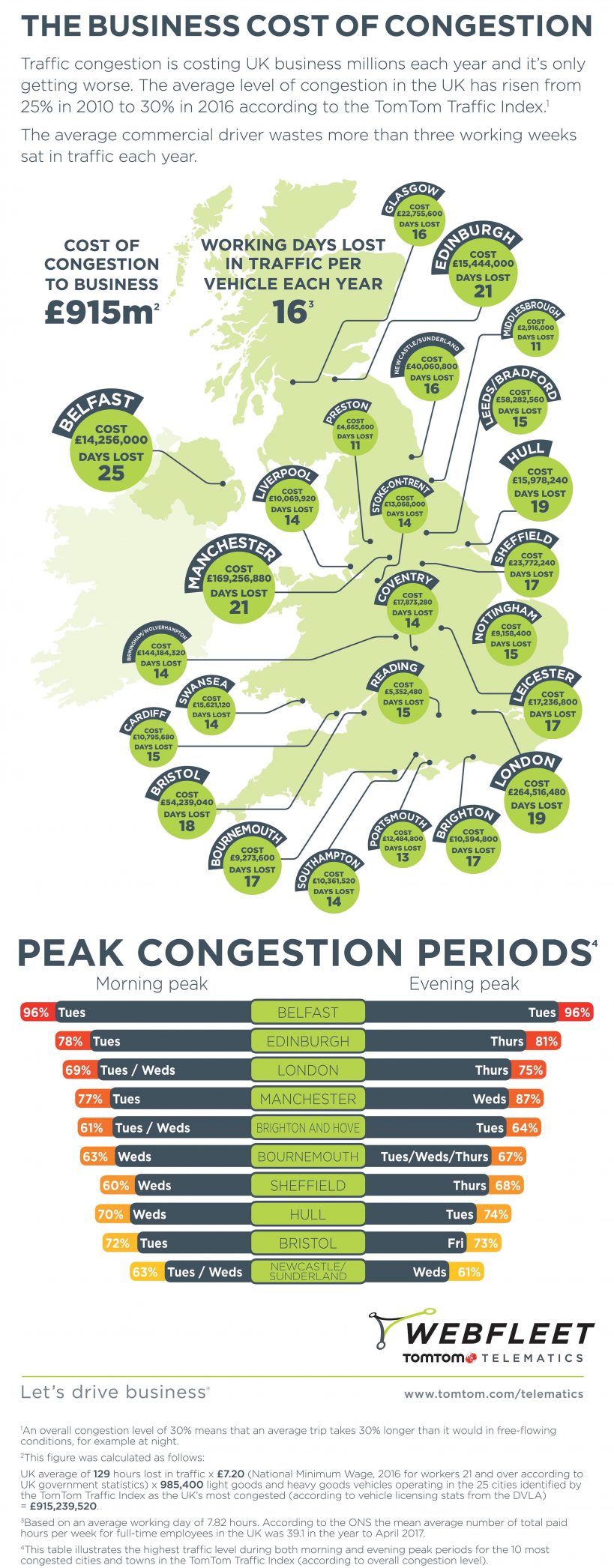Traffic congestion comes with a hefty price tag for commercial fleet operators in the UK.
The latest TomTom Traffic Index has found that approaching £1 billion is wasted by drivers sat in traffic over the course of a year.[1]
Congestion across the UK’s 25 busiest cities and towns has been found to increase the time each vehicle spends on the road by an average of 129 hours a year. In that time you could play 86 football matches, make eight return flights from Heathrow to Chilean capital Santiago, or listen to epic Pink Floyd album The Wall 81 times and still have a bit of time to spare.
This also translates to more than 16 working days[2] – billable time which businesses can ill afford to lose. In financial terms, the time lost to traffic across the UK stands at an approximate £915,239,520, which is an attention-grabbing headline figure.
It all points to the need for businesses to develop smarter processes for traffic avoidance, routing and scheduling, especially as the traffic situation appears to be getting continuously worse. An average journey in 2016 took 30% longer than it would in free-flowing conditions, up from a 25% delay in 2010.[3]
In order to mitigate this impact, businesses should look to make the best of the data at their disposal. For example, integrated solutions that combine telematics with specialist routing and scheduling software can help fleets to develop truly dynamic schedules that can be altered according to the developing situation out on the road.
Data on historic journey times, efficient routes between specified locations, the up-to-date traffic situation and estimated times of arrival (ETAs) for specific routes can be fed into routing and scheduling platforms, helping to create optimised schedules that minimise time on the road.
For more information, check out our blog on how truck fleets can improve routing or our blog looking at the challenges facing van fleets.

[1] This figure was calculated as follows:
UK average of 129 hours lost in traffic x £7.20 (National Minimum Wage, 2015 for workers 21 and over according to UK government statistics) x 985,400 light goods and heavy goods vehicles operating in the 25 cities identified by the TomTom Traffic Index as the UK’s most congested (according to vehicle licensing stats from the DVLA) = £915,239,520.
[2] Based on an average working day of 7.82 hours. According to the ONS the mean average number of total paid hours per week for full-time employees in the UK was 39.1 in the year to April 2017.
[3] An overall congestion level of 30% means that an average trip takes 30% longer than it would under uncongested conditions, for example at night.








